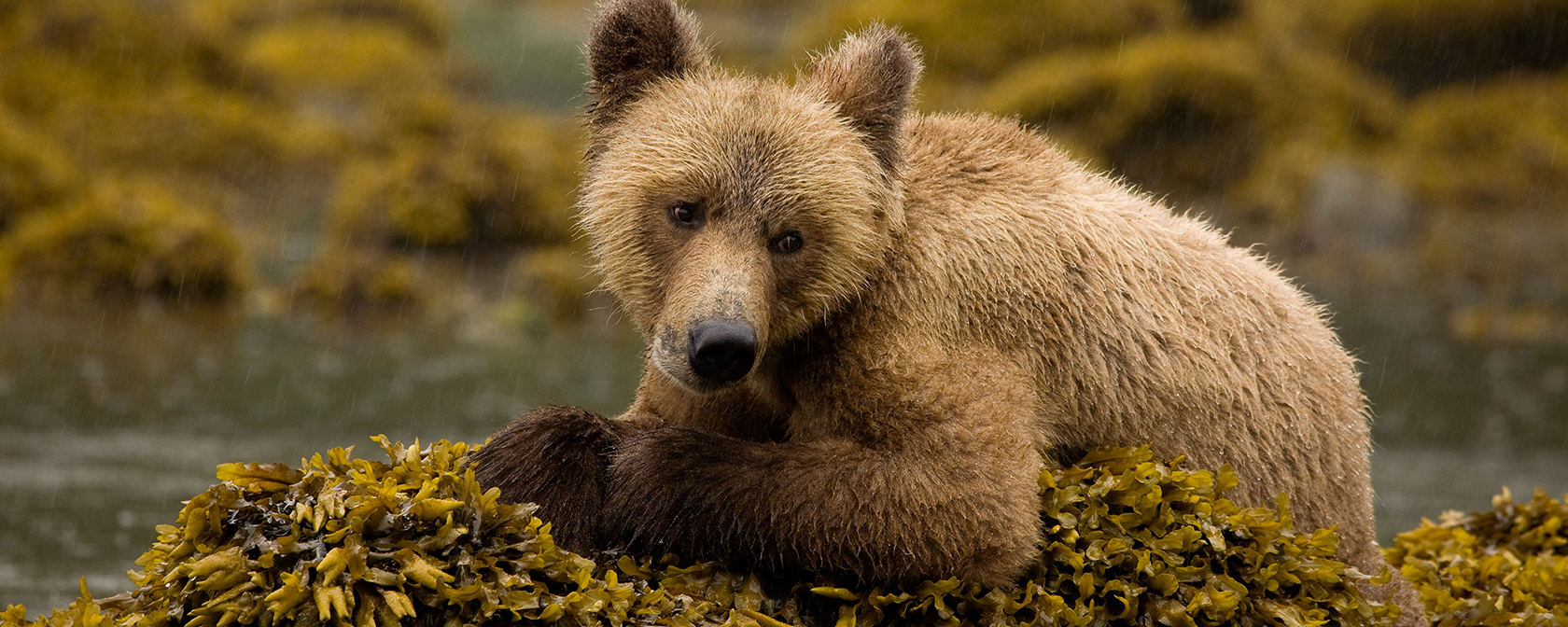By Sara Amundson and Kitty Block
A federal appeals court has agreed that Yellowstone grizzly bears should continue to receive protection under the U.S. Endangered Species Act, ensuring that these iconic American carnivores will not be hunted for trophies.
The Ninth Circuit Court of Appeals issued a unanimous opinion today upholding an 2018 court victory that returned grizzly bears in the Greater Yellowstone Ecosystem to the federal list of threatened species. This ruling was a result of consolidated lawsuits filed by the Humane Society of the United States, allied conservation organizations and native American tribes, after the U.S. Fish and Wildlife Service, in June 2017, prematurely yanked federal ESA protections from Greater Yellowstone area grizzly bears and handed management authority to Idaho, Montana and Wyoming, the states surrounding Yellowstone.
Immediately, Wyoming and Idaho wildlife officials launched plans to allow trophy hunters to legally kill up to two dozen grizzly bears—plans we quickly thwarted by obtaining a temporary restraining order from a federal district court in Montana. The court sided with us again, overturning the FWS delisting in 2018.
In its ruling today, the appeals court agreed with the district court that the FWS cut corners and ignored science when it rushed to remove federal protections for these animals. The court also recognized that the government failed to consider the impacts that removing protections for grizzly bears in the Yellowstone ecosystem would have on other, even more imperiled, grizzly populations in the United States.
Today’s ruling affirms that grizzly bears will remain listed as threatened, protecting them from trophy hunting seasons that would otherwise take place in Wyoming, Idaho, and eventually Montana. And it criticized the FWS’s decision to rubber-stamp the states’ dubious, pro-trophy hunting conservation strategy, as well as the agency’s failure to ensure that the long-term genetic health of the population would be secure without federal protections.
This is a huge win, with the potential for long-term, positive impacts for grizzly bears in Yellowstone and the rest of the United States. Kudos to our legal team and our wildlife management team who fought relentlessly for years for this outcome. Trophy hunting organizations and the gun lobby, including Safari Club International and the NRA, opposed us tooth and nail all the way, appealing parts of the district court decision that even FWS did not, but in the end the grizzly bears won.
America's grizzly bears already face too many challenges to their survival today, including dwindling food resources, escalating human-caused mortality and state wildlife managers who unfairly malign bears based on perceived threats to livestock, even where there is little evidence that individual bears actually pose a significant threat to cattle or other animals grazing on federal and private land. We are happy for the role we have played in ensuring they continue to thrive and survive, but this battle may not be over yet. Our federal government, and the states bordering Yellowstone, have repeatedly shown themselves to be close allies of trophy hunters, and we remain on guard to ward off any future threats. For now, we are grateful our courts have recognized the importance of strong federal protections to the survival of these native carnivores and stand ready to hold government agencies accountable when they circumvent our most important wildlife protection laws.
Kitty Block is President and CEO of the Humane Society of the United States.




